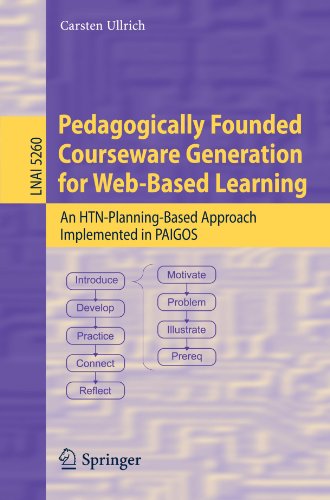

Most ebook files are in PDF format, so you can easily read them using various software such as Foxit Reader or directly on the Google Chrome browser.
Some ebook files are released by publishers in other formats such as .awz, .mobi, .epub, .fb2, etc. You may need to install specific software to read these formats on mobile/PC, such as Calibre.
Please read the tutorial at this link: https://ebookbell.com/faq
We offer FREE conversion to the popular formats you request; however, this may take some time. Therefore, right after payment, please email us, and we will try to provide the service as quickly as possible.
For some exceptional file formats or broken links (if any), please refrain from opening any disputes. Instead, email us first, and we will try to assist within a maximum of 6 hours.
EbookBell Team

0.0
0 reviewsAutomatic course generation is a very important area of research with numerous practical applications in e-learning. It has been studied since the 1980s within the fields of intelligent tutoring, AI and education, adaptive hypermedia and web-based educational systems. Many approaches have been proposed, but hardly any have resulted in generic and practically applied systems. A number of problems have remained unresolved. These problems are addressed by this work.
This book focuses on course generation based on Hierarchical Task Network planning (HTN planning). This course generation framework enables the formalization and application of complex and realistic pedagogical knowledge. The volume describes basic techniques for course generation, which are used to formalize seven different types of courses (for instance, introducing the learner to previously unknown concepts and supporting the learner during rehearsal) and several elementary learning goals (e.g., selecting an appropriate example or exercise). This framework has been implemented and evaluated with good results in several domains, with users from different countries and universities, in the context of an EU project.
Course generation based on HTN planning is implemented in PAIGOS and has been evaluated by technical, formative and summative evaluations.